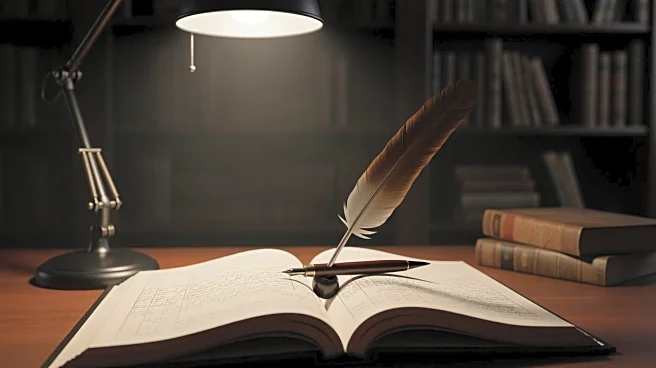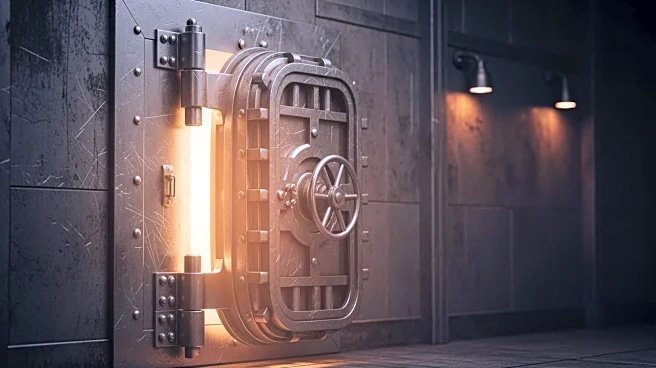What's Happening?
A study from King's College London has found that the 'tradwife' trend, which involves women embracing traditional homemaker roles, is more about seeking balance between work and family commitments than a return to traditional gender roles. The research
analyzed data from the British Social Attitudes Survey and the Genders and Generation Survey, revealing that only 10% of women and men agree with traditional gender roles, while 70-80% believe both genders should contribute to household income. The study highlights that the appeal of tradwife content is rooted in the desire for simplicity and relief from high-pressure work environments, rather than nostalgia for mid-century values.
Why It's Important?
The study's findings suggest that the tradwife trend is a response to modern work pressures and rising childcare costs, which make balancing work and family life challenging. This trend reflects a broader cultural shift among younger generations, particularly Gen Z, who are moving away from hustle culture and idealizing wellness and leisure. The popularity of tradwife content on social media serves as a psychological escape from burnout and economic insecurity, highlighting the need for workplaces to address the demands placed on women. The trend also raises concerns about romanticizing past gender roles without acknowledging the historical challenges faced by women.
What's Next?
The growing popularity of tradwife content may prompt discussions on gender equality and workplace policies, as younger generations seek alternatives to traditional work models. Researchers warn that without proper responses to these pressures, there is a risk of pushing women towards restrictive family visions. The trend could influence public policy and societal attitudes towards gender roles and work-life balance, potentially leading to changes in how workplaces accommodate family responsibilities.
Beyond the Headlines
The tradwife trend highlights ethical and cultural dimensions, as it challenges traditional gender roles and raises questions about the historical awareness of younger generations. The trend's rise alongside skepticism towards gender equality initiatives suggests a complex cultural landscape where traditional values are both questioned and romanticized. This development could lead to long-term shifts in societal attitudes towards gender roles and work-life balance.
















